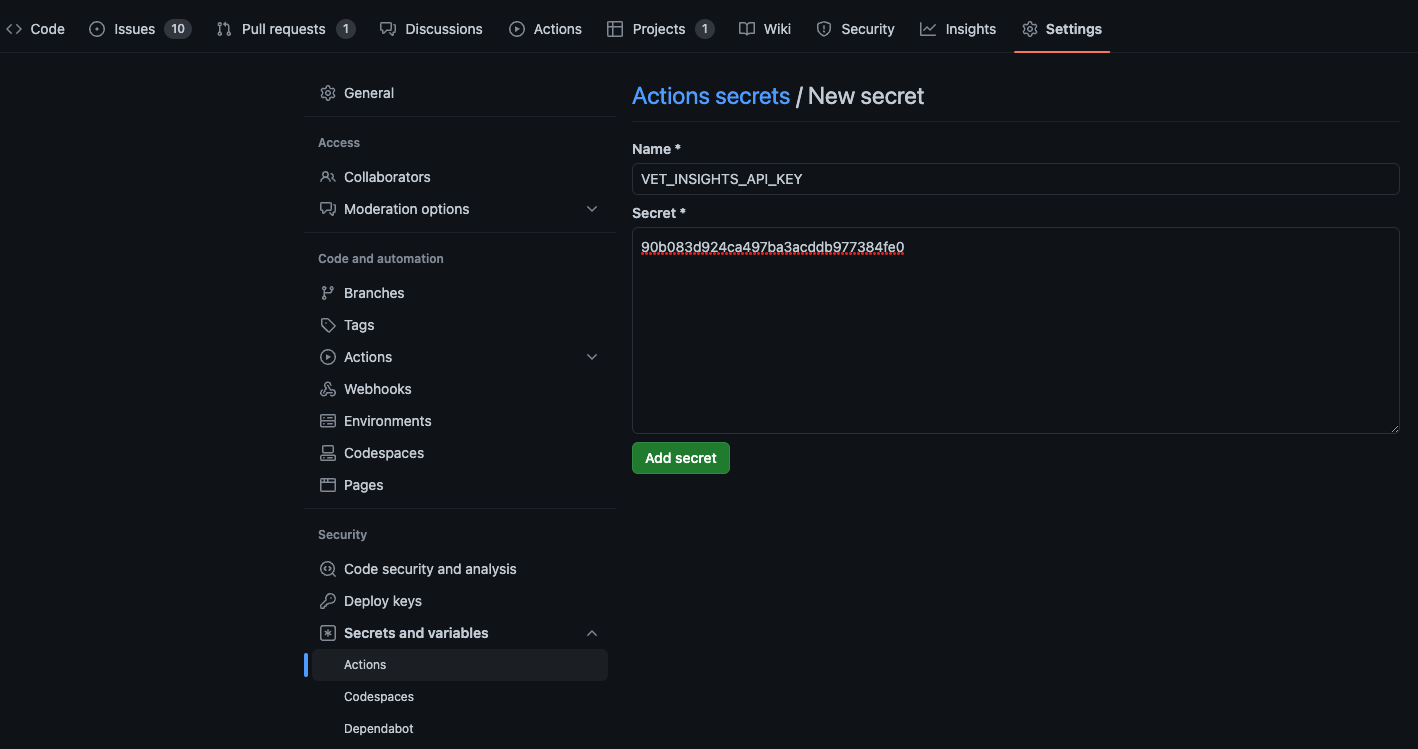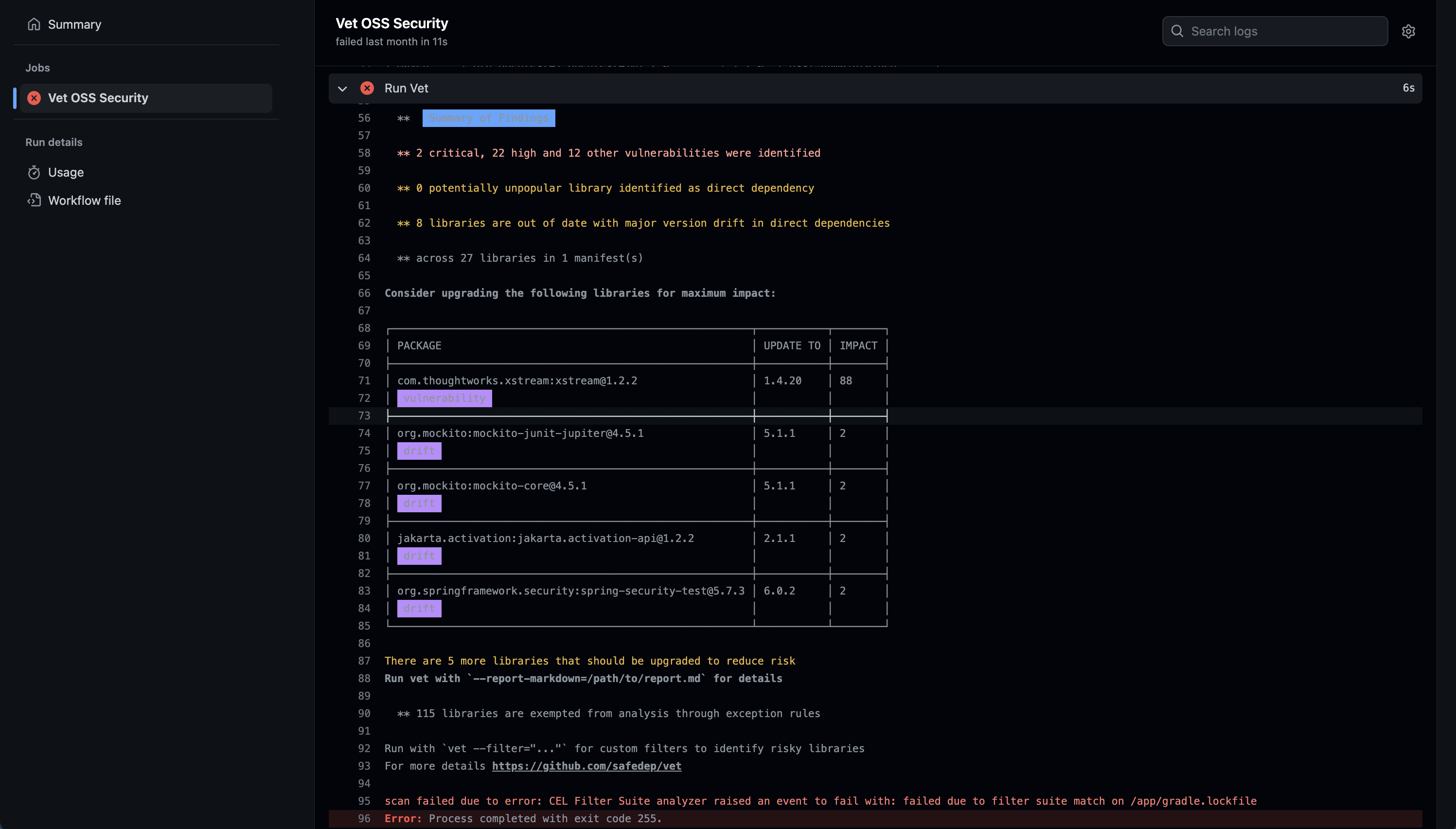🔁 Github Actions Workflow - Vet
- Make sure to get the registration key as
VET_INSIGHTS_API_KEYand store in the Github Secrets of the repository

- The following is the Github actions workflow file
.github/workflows/vet.yml
name: OSS Vet
on:
pull_request:
types: [opened, synchronize, reopened]
branches: [ main ]
jobs:
vet:
name: Vet OSS Security
runs-on: ubuntu-latest
steps:
- uses: actions/checkout@v2
- name: Run Vet
run: |
docker run \
-u $(id -u ${USER}):$(id -g ${USER}) \
-e VET_INSIGHTS_API_KEY=${{ secrets.VET_INSIGHTS_API_KEY }} \
-v `pwd`:/code \
ghcr.io/safedep/vet:latest \
scan -s -D /code \
--exceptions /code/.vet/exceptions.yml \
--filter-suite /code/.vet/oss-risk-pack.yml \
--filter-fail \
--report-markdown=/code/vet.md
- name: Add Vet Report to Summary
run: cat vet.md >> $GITHUB_STEP_SUMMARY
- The policy pack applied is as following OSS Best Practices
tip
- We have many policy packs available at Query Packs
- You can also write your custom policy as a code, refer to PaaC
.vet/oss-risk-pack.yml
name: General Purpose OSS Best Practices
description: |
This filter suite contains rules for implementing general purpose OSS
consumption best practices for an organization.
filters:
- name: critical-or-high-vulns
value: |
vulns.critical.exists(p, true) || vulns.high.exists(p, true)
- name: low-popularity
value: |
projects.exists(p, (p.type == "GITHUB") && (p.stars < 10))
- name: risky-oss-licenses
value: |
licenses.exists(p, p == "GPL-2.0") ||
licenses.exists(p, p == "GPL-3.0")
- name: ossf-unmaintained
value: |
scorecard.scores["Maintained"] == 0
- name: ossf-dangerous-workflow
value: |
scorecard.scores["Dangerous-Workflow"] == 0
🚀 Real-world example of vet in action
- The following is the example of how
vetcan be leveraged to enable security guardrails for your pipelines and continuous workflows using security packs https://github.com/safedep/demo-client-java/pull/2 for an insecure dependency
